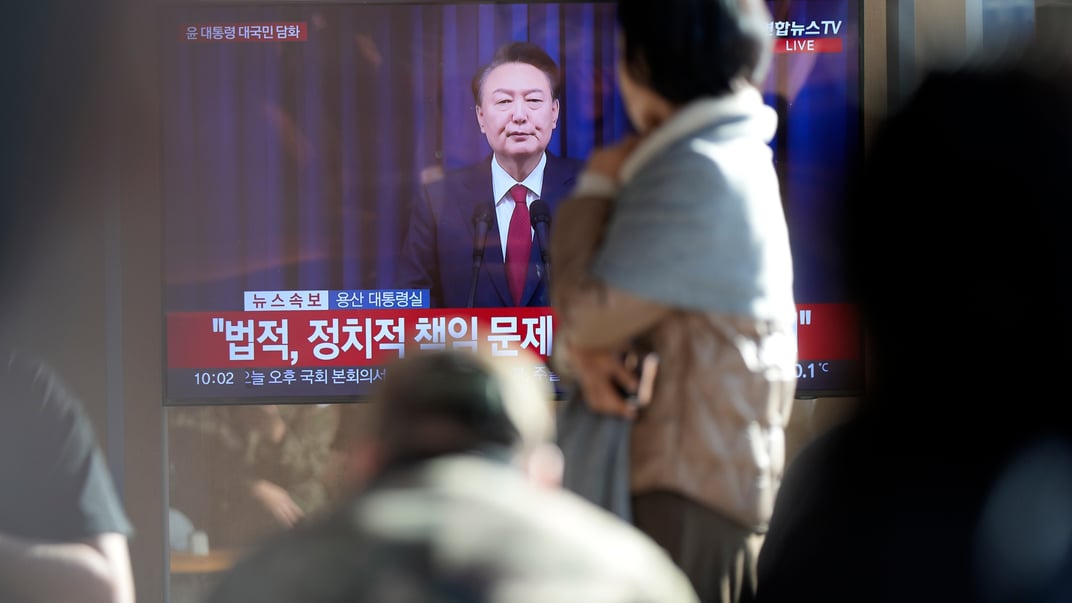The President of South Korea apologized for the imposed martial law, stating it was a decision made out of "desperation."

This is reported by the South Korean news agency Yonhap.
During his address, the head of state promised not to make such attempts again and stated that he had declared a state of emergency due to "desperation." He also denied rumors that the state of emergency would be reinstated.
According to Yonhap, the address to the nation took place just hours before the South Korean parliament—the National Assembly—was set to vote on the impeachment of the current head of state. Yoon Suk-yeol emphasized: "I will not evade legal and political responsibility associated with this declaration of a state of emergency."
If the parliament votes for impeachment, the current leader could be replaced by opposition leader Lee Jae-myung of the Democratic Party. Early elections would be held 60 days after impeachment. However, Lee also faces several challenges: he is threatened by multiple lawsuits over corruption and other crimes.
If the impeachment attempt fails, the ruling party may consider various measures, including amending the Constitution to shorten the president's term and grant more power to the Prime Minister, who currently holds a mostly ceremonial role.
What happened in South Korea?
On December 3, South Korean President Yoon Suk-yeol unexpectedly announced in an evening address that a state of emergency would be declared in the country. He cited "anti-state activities" by the opposition, which he accused of supporting North Korea.
This statement came after several weeks of political disputes over a new state budget bill, which the opposition Democratic Party refused to approve. Instead, the opposition submitted a reduced budget proposal to the parliamentary budget committee, as well as a request for impeachment against the state auditor and the Attorney General.
The declaration of a state of emergency allowed the president to gain strict control over political activities and the media. Yoon's decision shocked even his own party, with the leader of the "People Power Party," Han Dong-hoon, calling it "incorrect."
After the announcement of the state of emergency, military forces blocked the parliament building. They denied entry to opposition lawmakers who arrived after Yoon's statement to overturn his decision.
Eventually, around 1 AM local time, 190 out of 300 National Assembly members voted to repeal the state of emergency. Additionally, thousands of people gathered outside the building, demanding the resignation of the head of state.
In the wake of these events, the South Korean currency fell to its lowest level against the US dollar since October 2022.
Currently, six opposition parties in South Korea have submitted a request for the impeachment of President Yoon Suk-yeol. All senior aides to President Yoon Suk-yeol, including his chief of staff, have expressed their desire to resign. Media speculation suggests that Yoon may also face charges of treason.